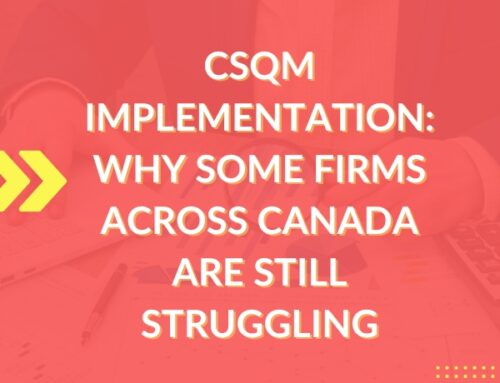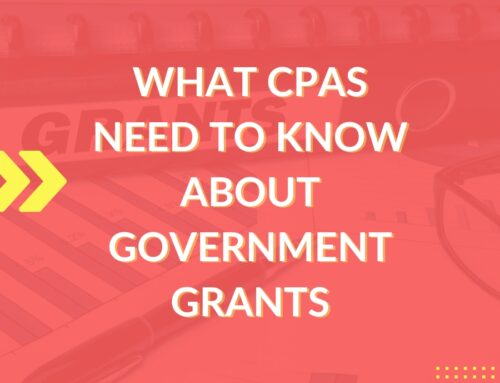July 31, 2023.
Think back to the 90s and how different everything was. The evolution of the accounting industry and being a CPA has also undergone a significant facelift. Sure, the game is similar; but new or updated laws, social issues, evolving industry trends, and technological advances continue to shape the field in new ways.
Frankly, we don’t even need to go so far back as the 90s to feel the shift. Just this year, we’ve seen new accounting issues pop up that every CPA should keep tabs on to stay diligent, effective, and relevant to their clients.
Professional development courses are a fabulous start, and AJAG can help with that. We tailor our course offerings to ensure tens of thousands of CPAs find the most relevant and meaningful CPD courses for their interests and specialties.
Below we highlight some top accounting issues in 2023 and how to prepare for them.
Key accounting issues in 2023
Here’s what every CPA should look out for this year:
1. Ensuring accuracy and trust in the brave new world of AI accounting
AI isn’t new to CPAs — Intuit Quickbooks reports that 97% of the nearly 2,700 accounting professionals surveyed said they are comfortable with AI in their day-to-day operations. Over half of Canada’s accounting firms plan to invest in AI in 2023, but AI still presents some accounting issues:
- Determining best uses
- Trusting reporting accuracy
- Maintaining security
Plus, firms will have to prioritize investments in training to ensure their CPAs can interact with AI’s latest developments while meeting client needs and regulatory standards.
2. Increased risk of accounting fraud in a looming recession
Notice a statement of revenue that looks too good to be true? You might see more of that in 2023, and that’s because economic challenges and fear of a recession can often lead to more fraud, especially accounting fraud.
Additionally, CPAs dealing with personal tax returns might hear more fraud concerns from their clients. IPSOS recently found that individuals are reporting debit, credit, and CRA fraud attempts in 2023.
3. Updated CPA Canada Compilation Standard
CPA Canada recently updated their compiled financial information standards with a new section: Canadian Standard Related Services (CSRS) 4200 — Compilation Engagements.
Considering this is the first update we’ve seen in 30 years, it’s a pretty significant change. It impacts how your compilation engagement reports will look and offers more clarity in roles and responsibilities for CPAs versus client management teams.
4. Uncertainty in forecasting, budgeting, and planning
Economic instability can also bring uncertainty for CPAs in the planning process. It becomes harder to forecast budgets accurately and predict revenue and cash flow accurately.
5. Demand for remote and hybrid work
The value of work-life balance didn’t end with the COVID-19 pandemic. Today’s accounting talent craves more flexibility and mitigators to the stress traditionally experienced in the field. That means firms will have to ensure the right tech and policies remain in order to foster remote and hybrid work environments. Otherwise, they’ll risk more job vacancies and employee burnout.
What are the social issues related to accounting?
Tough economic times give rise to social issues in every industry, and accounting is no exception. CPAs can expect to see companies struggling with layoffs and subsequent employee labour relations, along with questionable ethics and increased risk of fraud.
CPAs themselves might struggle with more mental health issues and economic hardship that could impact performance. Changing values and expectations might also increase turnover, as one Robert Half research study found. Over 60% of finance and accounting managers are hiring, while 89% cite challenges in finding talent.
How to prepare for accounting issues in 2023
Sounds bleak, right? Luckily, firms can tackle accounting issues with a little strategy and preparation.
1. Identify and address risks.
Every firm knows their niche, clients, and most recent challenges. Conduct a few surveys and audit your staff to discover the most pressing issues and prepare with scenario planning and stress testing.
For example, firms that identify fraud as a top risk can better prepare with custom matrixes to level up fraud detection efforts.
2. Recommend the right PD courses to manage these risks.
Take the initiative and support your CPAs with relevant, solution-oriented PD courses to help ensure everyone is prepared.
AJAG offers a range of CPD courses taught by industry and field experts. A few courses to take note of for you and your firm include
- Fraud Responsibilities in Audit Engagements 2023: Stay on top of 2023 fraud risk factors in this course led by David Baker, a CPA and CA with over 20 years of experience running his own public accounting practice.
- Cybercrime Leveraging Artificial Intelligence in 2023: As CPAs become more accustomed to the best uses of AI in their day-to-day work, so do cybercriminals. Keep your firm vigilant about both risks and benefits of using AI tools, as well as common cyber-attacks with AI.
- CSQM1 Implementation for Compilation-only Practices 2023: CPA Canada’s updated compilation standard means firms performing compilation-only engagements now have a QA standard for the first time. Stay ahead of the grain with this brand new course this fall, led by Marcus Guenther, an expert in internal control, risk management, and workflows for accounting firms.
Accounting issues and you
AI accuracy, increased fraud, and new compliance guidelines might feel overwhelming, but the right education and awareness can help mitigate that stress for CPAs. AJAG’s industry leading PD courses cover a wide range of topics to meet every firm’s needs. Explore AJAG’s courses today!






